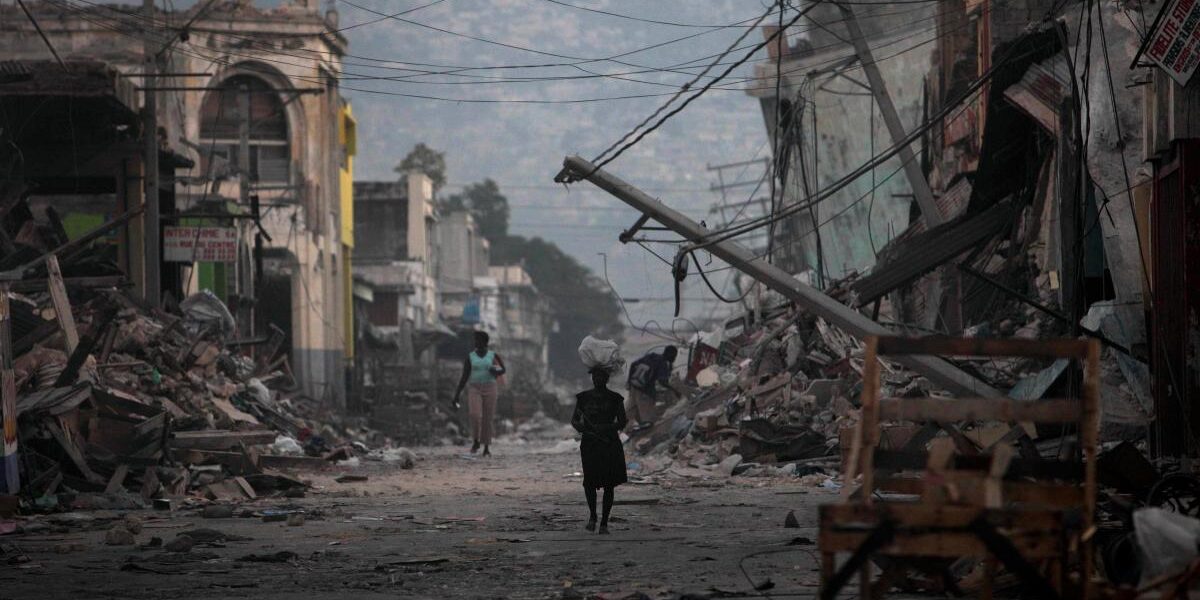The Times of London recently released an article I’d consider essential reading for any person desiring to engage deep needs in our world’s most broken places.
“How the Global Aid Industry Lost Its Way” builds on reports of severe and widespread sexual abuse by foreign aid workers in Haiti. Those entrusted with protection and restoration instead used their position to pleasure themselves and harm people already ravaged by poverty and other ills.
From Haiti, the article moves on to a long list of other sordid examples of humanitarian efforts gone horribly wrong. It ultimate concludes, “Charities and NGOs that salved our consciences have somehow become part of the problem, and now only tough action can undo the harm.”
My own experience resonates strongly with many of the article’s conclusions. On the one hand, I’ve seen that foreign aid done wisely – such as the PEPFAR program initiated by President Bush to combat global AIDS – has achieved immense good. On the other, one hardly need scratch the surface of many foreign aid programs to find immense waste…and sometimes much worse.
The questions the author raises about the proper place of humanitarian aid and its propensity to undercut healthy local systems deserve serious consideration. Given the spotted history of aid and development, it is fair to ask if we can expect that the good will consistently outweigh the harm.
But I see in this story an even more foundational truth as well. Any time we enter the world’s hurting places and seek to bring good, the results will be mixed at best. Success will be partial. Change will be incomplete. And always there will be risk of unintended harm.
Any time we enter the world’s hurting places and seek to bring good, the results will be mixed at best.
That’s true of the United Nations and Oxfam, as the article makes painfully clear. It’s true of inter-country adoption. It’s true of the painfully complex decisions U.S. social workers must make in deciding when to reunify a child and when to terminate parental rights. It’s true of family preservation and orphan care and a hundred other such efforts as well.
What can we conclude from all this? Here are four things we need to know:
First, this certainly doesn’t mean that all efforts to address deep needs are equal. Some approaches are wise; some foolish. Some stand far higher chances of doing good; others are almost certain to do a great deal of harm. So preparation, discernment and continual self-critique are paramount in any effort to address complex needs.
Second, if we get involved we’ll likely get dirty. Even when we’re doing all we can to apply best practice and the latest research and every safeguard available, mistakes will still be made. Results will be less than hoped. And there very well may be collateral damage despite our best efforts to the contrary. So if we want to avoid being mud-splattered, we better stay away.
Third, prophets are essential. We need people who are willing to say the hard things – pointing out where good intentions have gone awry and reminding where we need to do better. A real prophet isn’t just a critic – she believes in the mission, wants to see things set right, and is willing to help with that, too.
Forth, naysayers will always have something to say. Unlike a prophet, a naysayer takes pleasure in pointing out flaws. He has no intent to help beyond criticism, and deep down, he’s often as happy to see the mission fail as succeed. As the naysayer catalogues others’ failings, he feels morally superior because he didn’t make the mistakes the do-er made. But for all his smugness, he’ll almost certainly end his life with a small heart and shriveled soul.
So if you’re thinking of coming near to broken places, getting involved with hurting people…be warned. The costs will often be higher and the results less complete than you may have imagined at the start.
I’d still argue this life is better than the alternative – the smallness of self-focus. Far better. But we need to know from the start, it is not for the faint of heart.

